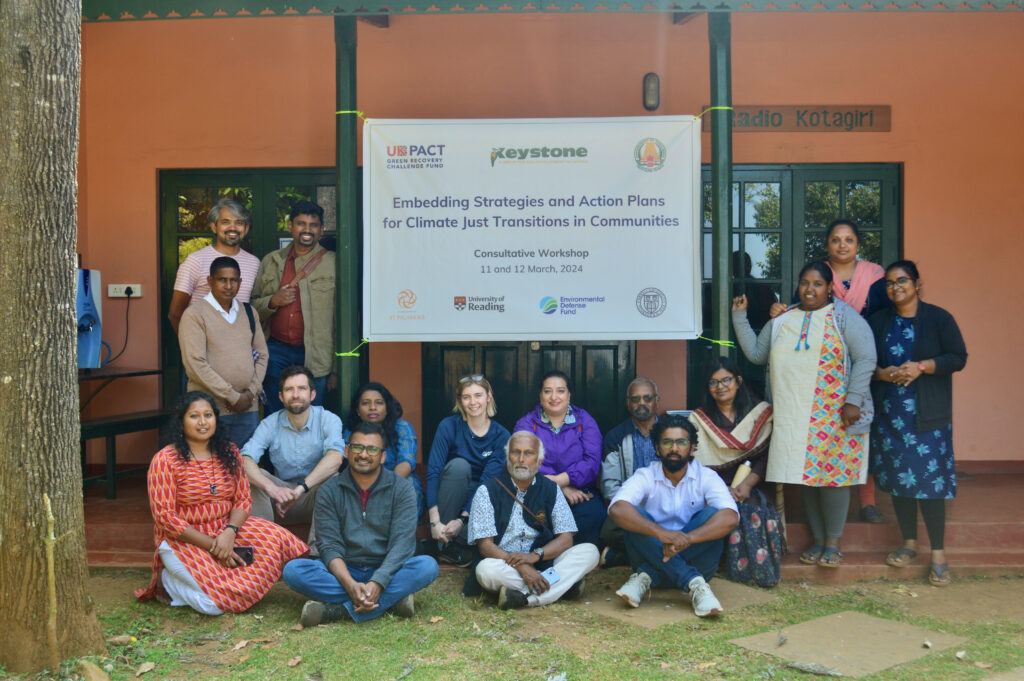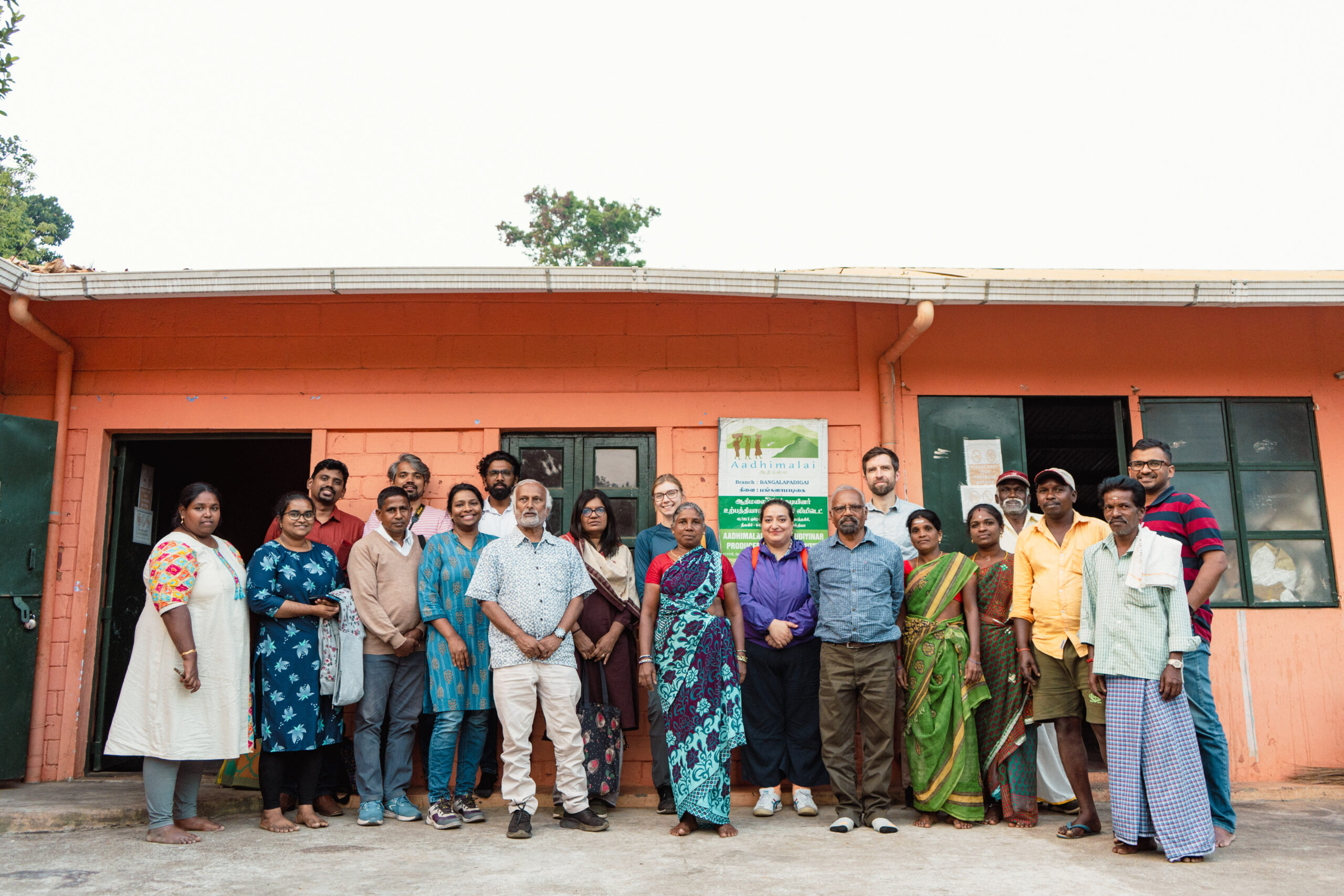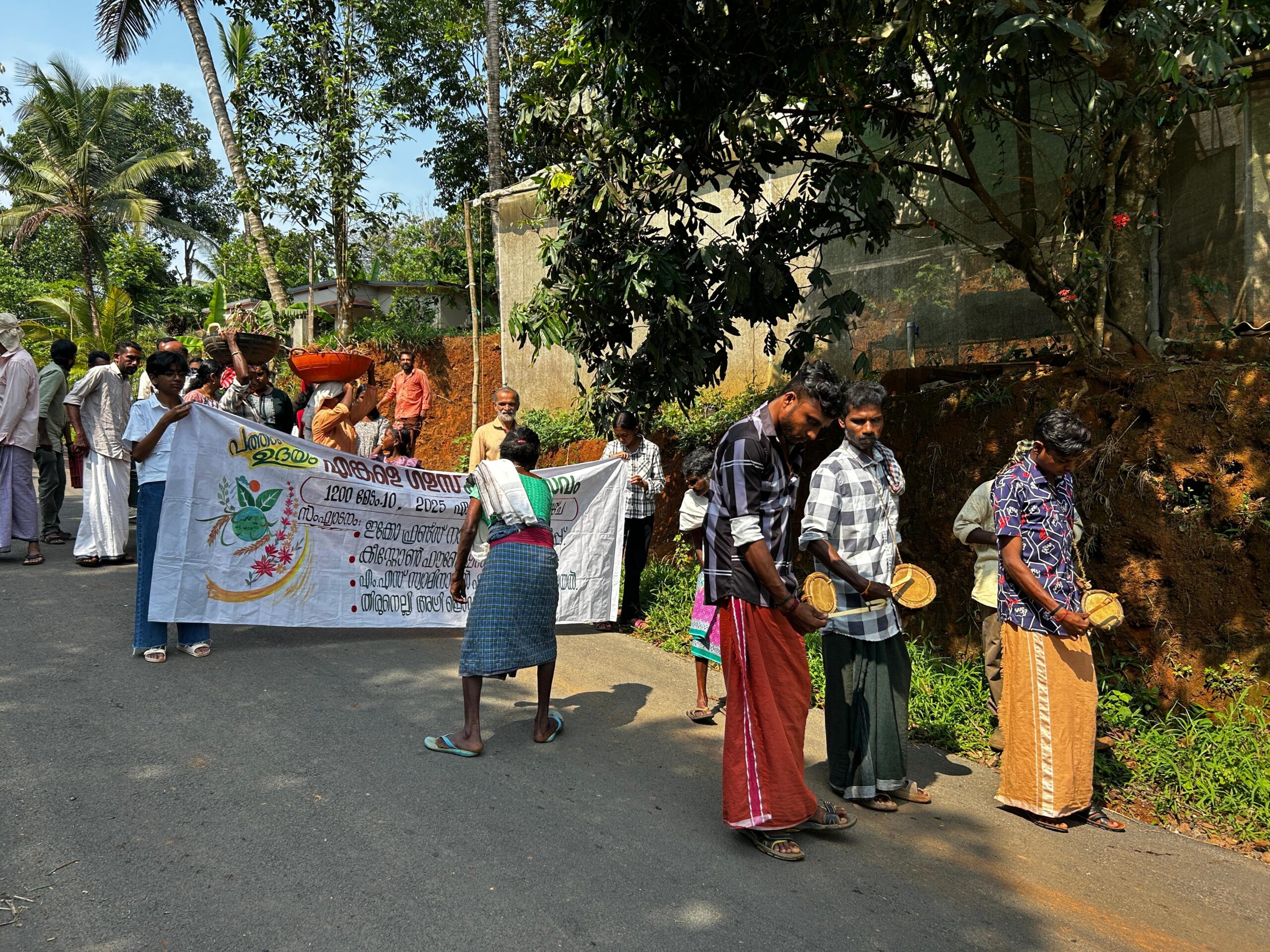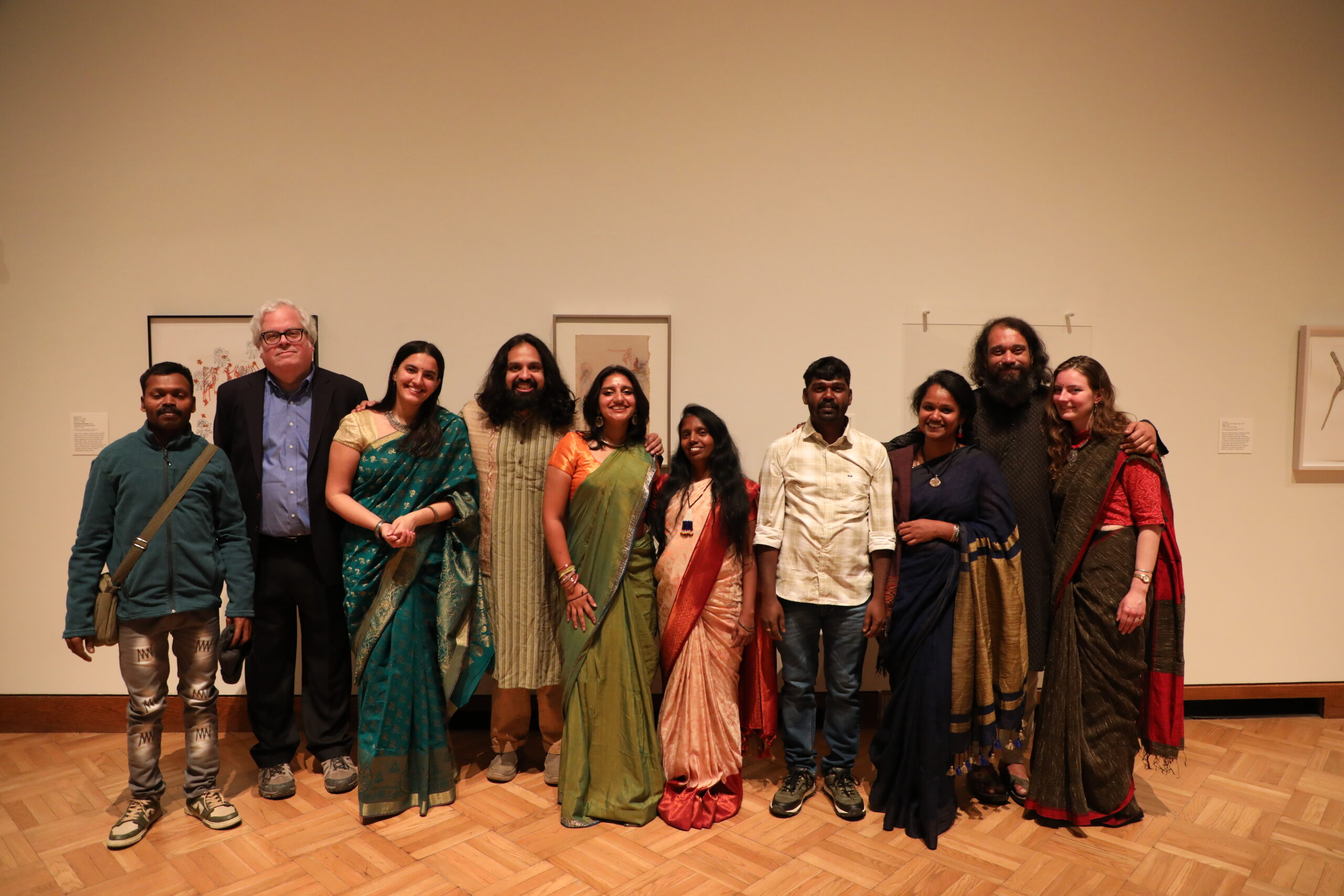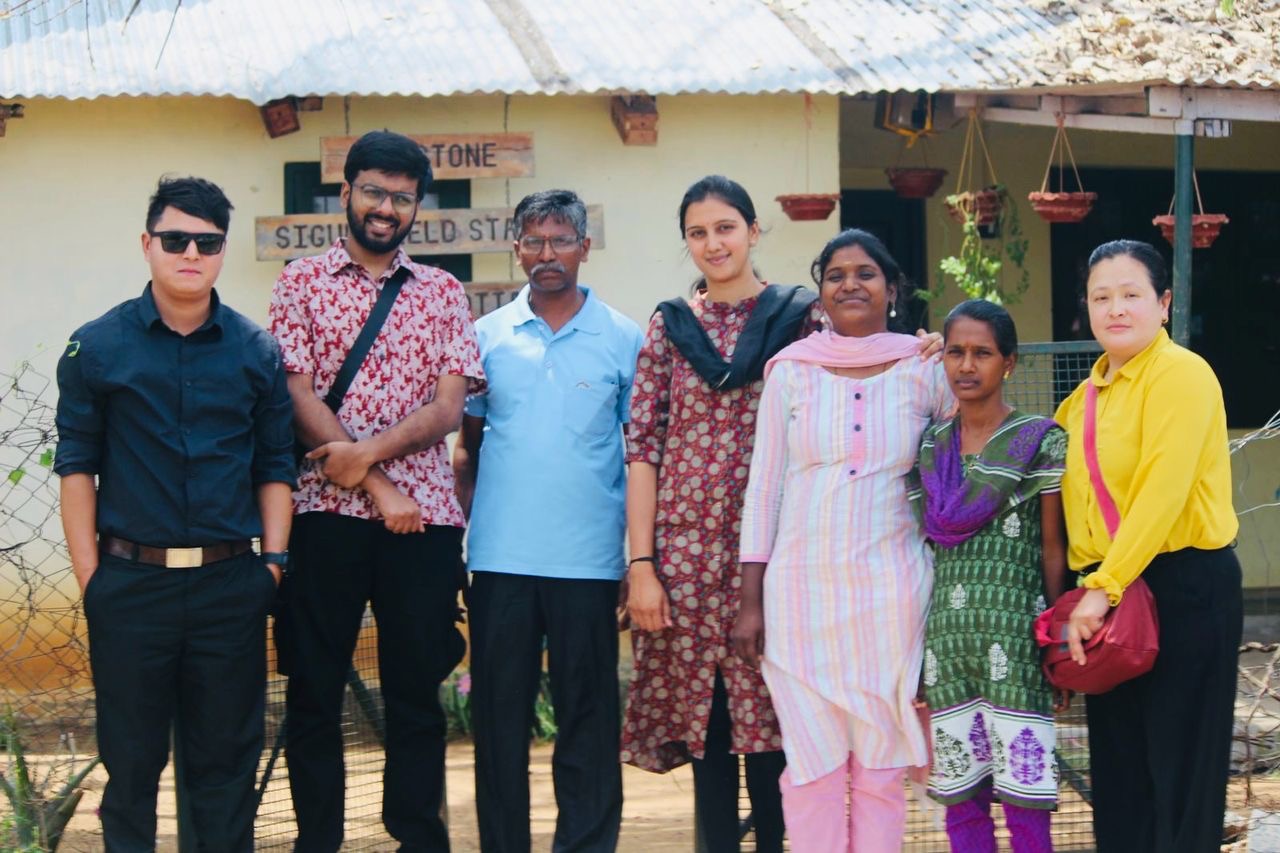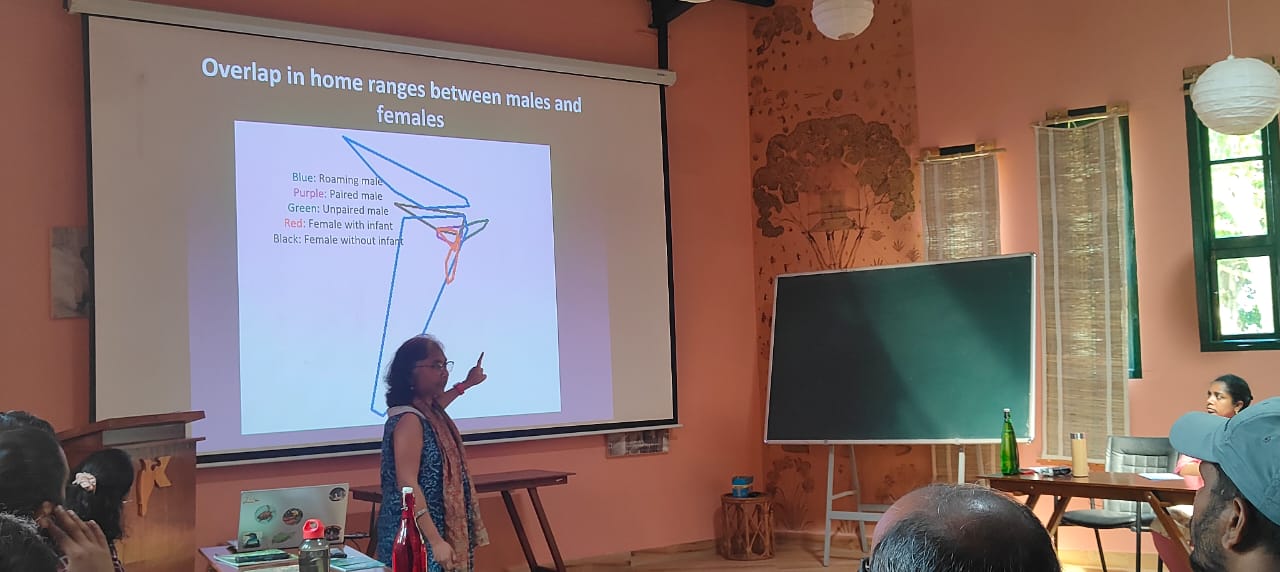From March 11th to March 15th, Keystone Foundation was host to the Embedding Strategies and Action Plans for Climate Just Transitions in Communities Consultative Workshop.
Forward by Pratim Roy:
The workshop was an opportunity to share our work, go to the field, meet the stakeholders, explore the nuances of Measurement, Reporting and Verification (MRV) in a Forests, Tribal, Mountain ecosystem. For example the linkages of a FPO, a community foundation, Non Timber Forest Products, Forest Rights Act, and Livelihoods are all strands of an interesting MRV from a community lens. Listening to the District Forest Officer Gautam, Hisham, Chief Advisor to the EDF and Hanna Chorbachi, the UK Lead at UK PACT provided global, national, local perspectives and showed the dynamics of action – oriented projects like the UK PACT.
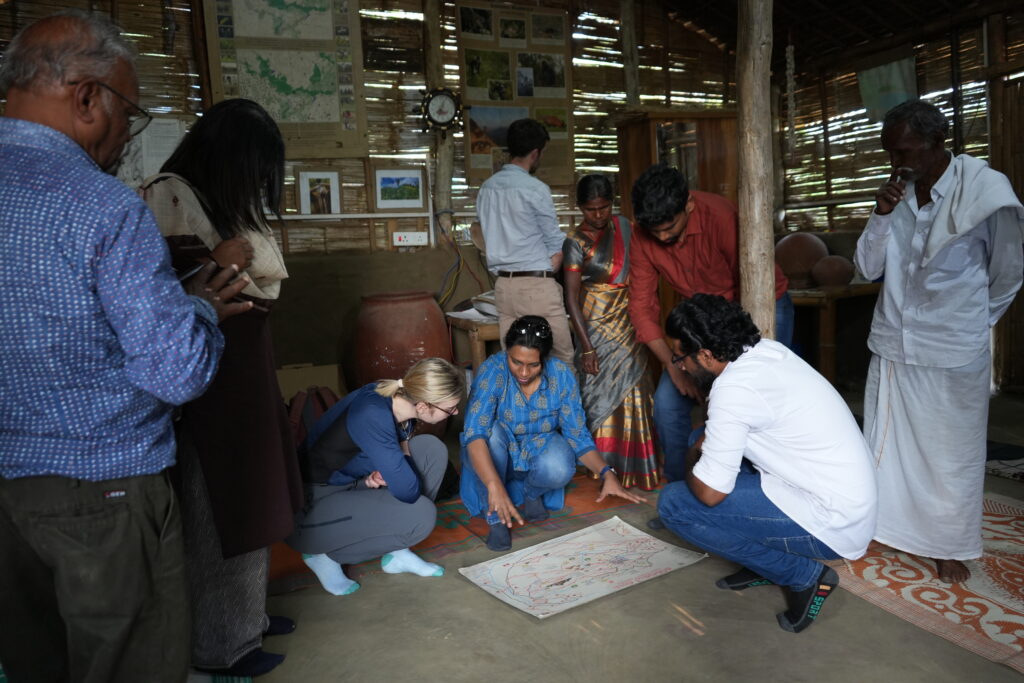
Key highlights:
The Consultative Workshop was organised to discuss the progress of the project since inception and way forward. The workshop served as a platform for all the stakeholders of the project to interact in person and effectively address the challenges in the project. These stakeholders include the University of Reading, Cornell University, IIT Palakkad, EDF and Keystone Foundation. The workshop, organised by Keystone Foundation, also involved stakeholders participation, including the state forest department, National and International Universities, Indigenous Communities including the Irular and Kurumba communities of Aracode Village Panchayat, the Environmental Defense Fund as an advisory agency, as well as a product development firm called At the Blocks Innovations.
Mr. Pratim Roy, Founder-Director of Keystone Foundation, welcomed Ms. Hanna Chorbachi, India Lead, UK PACT, Foreign, Commonwealth & Development Office(FCDO) and Ms. Tabinda Bashir, Advisor, Climate Change and Energy at FCDO, British High Commission, Delhi to the workshop. Pratim provided attendants with a brief about the Keystone UK Pact team’s experience with community based MRV protocol development.
Dr. Jyotsna Krishnakumar, Director of Keystone Foundation, introduced the team to the gathering. She emphasised the importance of biophysical, socio-economic and political indicators while monitoring climate change mitigation aspects within the scope of the Agriculture, Forestry, and Other Land Use (AFOLU) sector.
Ms. Hanna Chorbachi gave the special address, emphasizing the importance of a community-led monitoring, reporting and verification system in climate change mitigation. She also mentioned the various projects under the FCDO’s belt as well as scope for future works in India.
Mr. Gowtham, District Forest Officer for the Indian Forest Service in The Nilgiri district, spoke about climate change and forest management. Similarly to Ms. Chorbachi, he emphasised the need for community participation in conservation.
Mr. Hisham Mundol, Chief Advisor, Environmental Defense Fund, presented the current scenario of carbon markets in India. He discussed the possibilities and constraints in utilising carbon credits and other result-based payment schemes.
Mr. Akhil and the Keystone UK Pact team presented the progress of the project since inception. Some of the key highlights were Gender Equality, Disability and Social Inclusion (GEDSI) assessment, action plan development, development of a systematic carbon sampling methodology, and site-specific indicators for all the selected sites. This includes Aracode Village Panchayat, Vadamugam Vellode Village Panchayat and Killai Town Panchayat.
Mr. Raghuv Adhepalli, Founder of At the Blocks Innovations, presented his dashboard application and mobile application for data collection about the status of natural resources utilized by the communities and their well being.
Ms. Deepa Senapathi and Mr. Micheal Garratt from University of Reading discussed developing indicators for ecosystem monitoring. They visited the Non-Timber Forest Produce collection sites in Aracode site as well as agricultural areas in our Vellode site.
During the workshop, there were discussions about the role of local level institutions such as the Eco-Development Committee, Ecotourism Management Committee, Forest Rights Committee, and more.
The cohort also discussed the conversion of conventional chemical farming sites into organic farming in ecological sensitive zones and its feasibility. The importance of community engagement in the climate change mitigation scenario was discussed. There were specific conversations regarding various site-specific indicators that were co-developed by the team in consultation with various community stakeholders.
As a part of the workshop, all the attendants of the workshop visited the Aracode field site and interacted with the local communities and institutions in the site, including the Banglapadigai Production Centre and Porivarai, the Irula community center. Key community stakeholders representatives, such as Malliga, Kumaresh, and Sasikala from the tribal villages around Aracode actively participated and interacted with the workshop participants.
The workshop gave the team an opportunity to meet our partners and funders in-person and showcase our progress. All participants actively contributed to discussions and provided valuable feedback. The workshop allowed for an opportunity where partners and funders could meet the communities we are working with, similarly, these communities were able to meet the entire team and understand the larger objectives of our project. Ultimately, these workshop activities will help us better implement our project, Embedding Strategies and Action Plans for Climate Just Transitions in Communities.
